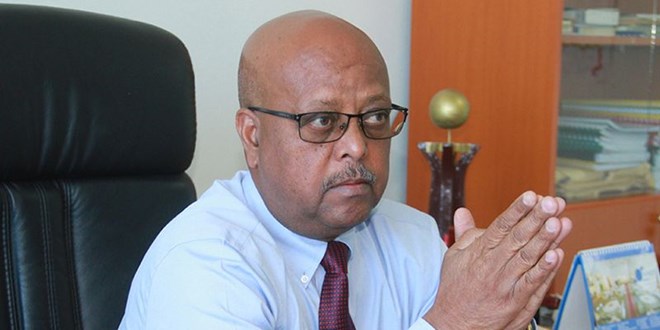Lt. Gen. Tsadkan Gebretensae, Vice President and Democratization Cabinet Secretariat of the Tigray Interim Administration, has issued a stark warning that war between Ethiopia and Eritrea “appears inevitable,” with preparations reaching their “final stages,” and Tigray facing the risk of becoming the central battleground.
“At any moment, war between Ethiopia and Eritrea could erupt,” Tsadkan, a former Chief of Staff of the Ethiopian Defense Forces, wrote in a commentary for The Africa Report, expressing concerns that the conflict could extend beyond the two countries, impacting Sudan and the Red Sea region. “Tigray would prefer to avoid such a conflict and advocate for peace,” he stated, but added that the “path to peace may be narrowing, leaving war as the only remaining option.”
Tsadkan argued that the alliance between Addis Abeba and Asmara has “gradually deteriorated” since the Pretoria peace agreement, increasing the likelihood of war. “Preparations are in their final stages,” he said, warning that once they reach a certain point, “it becomes very hard to hold [them] back.”
He accused Eritrea of engaging in “predatory state behavior” and attempting to “exploit surrounding countries, especially Ethiopia and Sudan.” He claimed Eritrea sees Tigray as “the primary obstacle” to its objectives and cautioned that Asmara is gearing up for war to “complete what Isaias has termed Tekolifna—we have been frustrated—following the Pretoria Cessation of Hostilities Agreement (CoHA).”
Tsadkan also highlighted that divisions within Tigray could further complicate the situation. “Elements within the fragmented TPLF and military who want to shield their past and current actions may prefer to align with Isaias,” he wrote. He alleged that some Tigrayan leaders view Eritrea as a tool to oust Abiy Ahmed, before eventually turning against Eritrea itself. “The thirst for power with total impunity has not dissipated within this group,” he said, accusing them of “indifference to the fate of the people of Tigray.”
Former Ethiopian President Mulatu Teshome has similarly accused Eritrean President Isaias Afwerki of attempting to “exploit divisions within the TPLF” to undermine the Pretoria Peace Agreement. In a February 17 opinion piece for Al Jazeera, Mulatu warned that Isaias’s actions could “reignite war in northern Ethiopia” and “tear up the entire peace deal.” He further claimed that Eritrea is supporting “divisions within the TPLF” and “building a militia in Ethiopia’s Amhara state” to destabilize the region.
Eritrea has dismissed these allegations, with Information Minister Yemane G. Meskel labeling them an “audacious claim” aimed at “justifying a war-mongering agenda.” Eritrea argued that Ethiopia’s internal issues should not be blamed on external forces, asserting that “the various problems facing the region originate from Ethiopia, not elsewhere.” It also denied any military presence in Ethiopia, stating that the Pretoria Agreement is an “internal Ethiopian matter.”
Tsadkan warned that a renewed war would have “devastating consequences,” stressing that “when the war ends, the geography of the states as we now recognize them will no longer be the same.” He predicted “major political realignments in the Horn of Africa and the Red Sea region,” especially if global attention continues to focus on other crises, including “Ukraine, Russia, the Middle East, and the Democratic Republic of Congo.”
Tsadkan emphasized that Tigray’s best course of action is to “avert war” and push for the “full implementation of the Pretoria agreement.” He urged the Ethiopian government and international partners to “step in and prevent another catastrophic war at the eleventh hour.” However, he warned that “if the effort to deter war fails, the swift termination of the conflict—by all means, military or diplomatic—would be in the best interest of Tigray and the region.”


